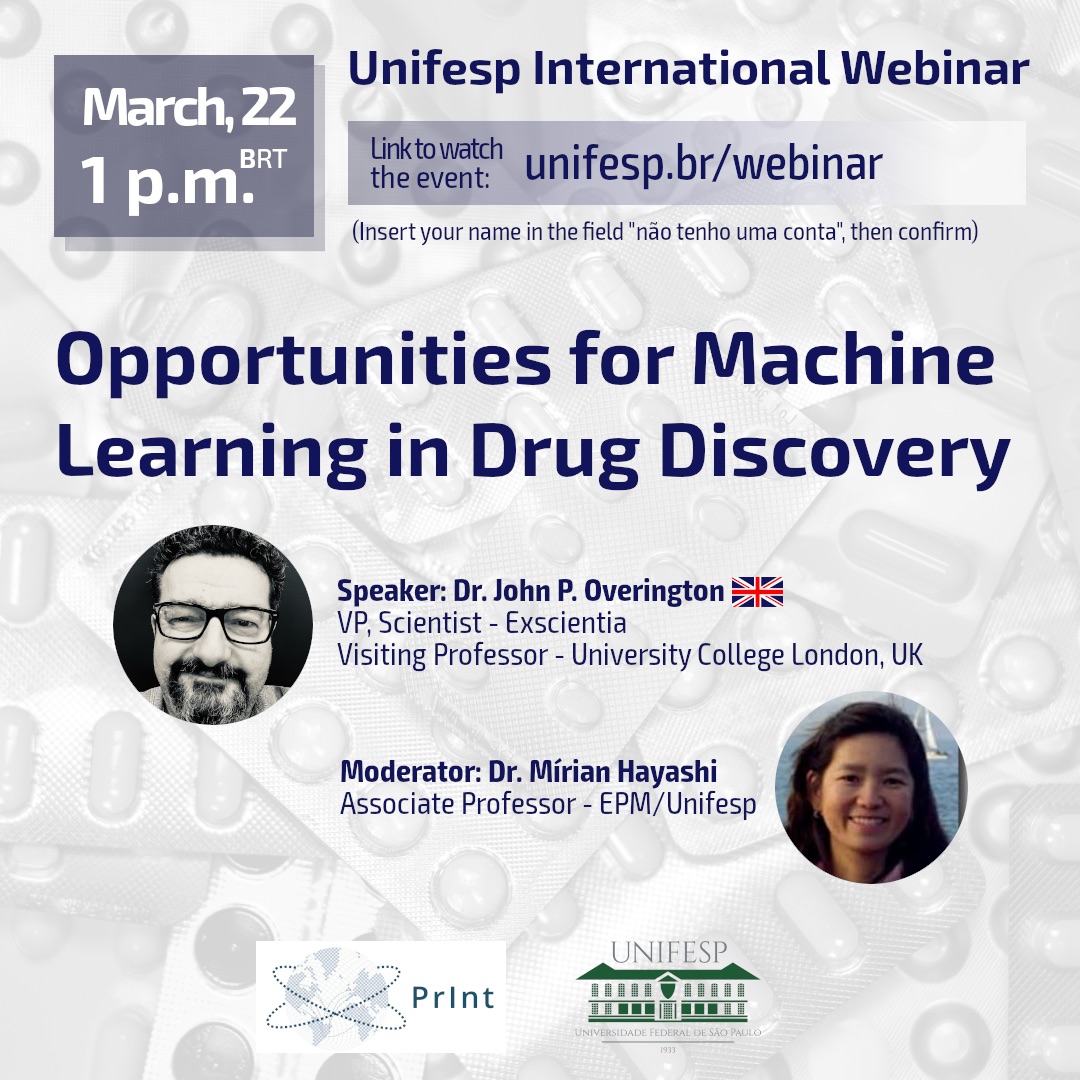On March 22, at 1 pm
Moderator: Mirian Hayashi, PhD, Associate Professor, Department of Pharmacology, Escola Paulista de Medicina - Unifesp
We are now in a data, compute and algorithm rich world, and still the discovery of new drugs is a major global challenge for many chronic diseases. It is clear though, that significant progress can be made, as evidenced by the rapid development and approval of novel small molecule and biological therapies for Covid-19. The talk will detail the need for radical increases in productivity and speed, industrialisation and automation, and how machine learning approaches can address both target discovery and validation, and lead discovery and optimisation. Other opportunities for machine learning to make impact addressing drug combinations and acquired resistance in cancer and infectious disease are detailed.
Speaker: John P. Overington, VP Scientist - Exscientia (Oxford Science Park) and Visiting Professor - University College London, UK
John studied Chemistry at the University of Bath (1987). He then studied for a PhD at Birkbeck College, London in the Department of Crystallography (1990). Whilst there he was involved in developing automated approaches to protein modelling, contributing to the development of COMPOSER and MODELLER; however his major research was on sequence-structure relationships, exploring the constraints applied by the local physical environment of a residue in constraining mutational trajectory (JOY and HOMSTRAD). John then held a postdoctoral position at the Imperial Cancer Research Fund (now part of CRUK).
John then joined Pfizer in 1992, originally as a computational chemist, progressing to a role where he led a multidisciplinary group combining rational drug design with structural biology. During this time, John became fascinated by the reasons for target/drug attrition and the falling productivity of the pharmaceutical industry. In 2000 John moved to a start-up biotech company, Inpharmatica, where we developed a series of computational and data platforms to improve drug discovery, including the SAR database StARLite.
In 2008 John was centrally involved in the transfer of this database to the EMBL-EBI, where the successor is now known as ChEMBL. More recently, the work has extended into patent informatics with the Open patent database SureChEMBL.
Most recently John joined a London-based technology company - Stratified Medical, where he continues his translational drug discovery informatics research and development activities. In this role, John is involved in integrating deep learning and other artificial intelligence approaches to drug target validation and drug optimisation.
Link to watch the event: unifesp.br/webinar
Speaker further information can be found at: link

